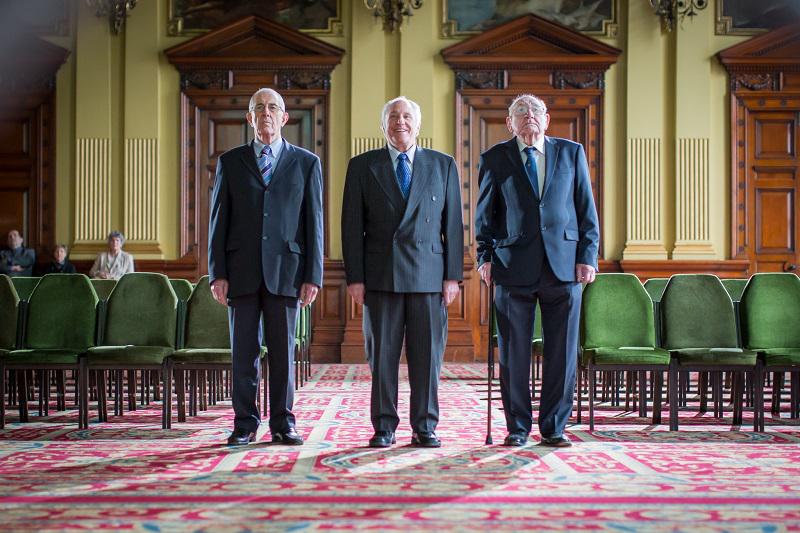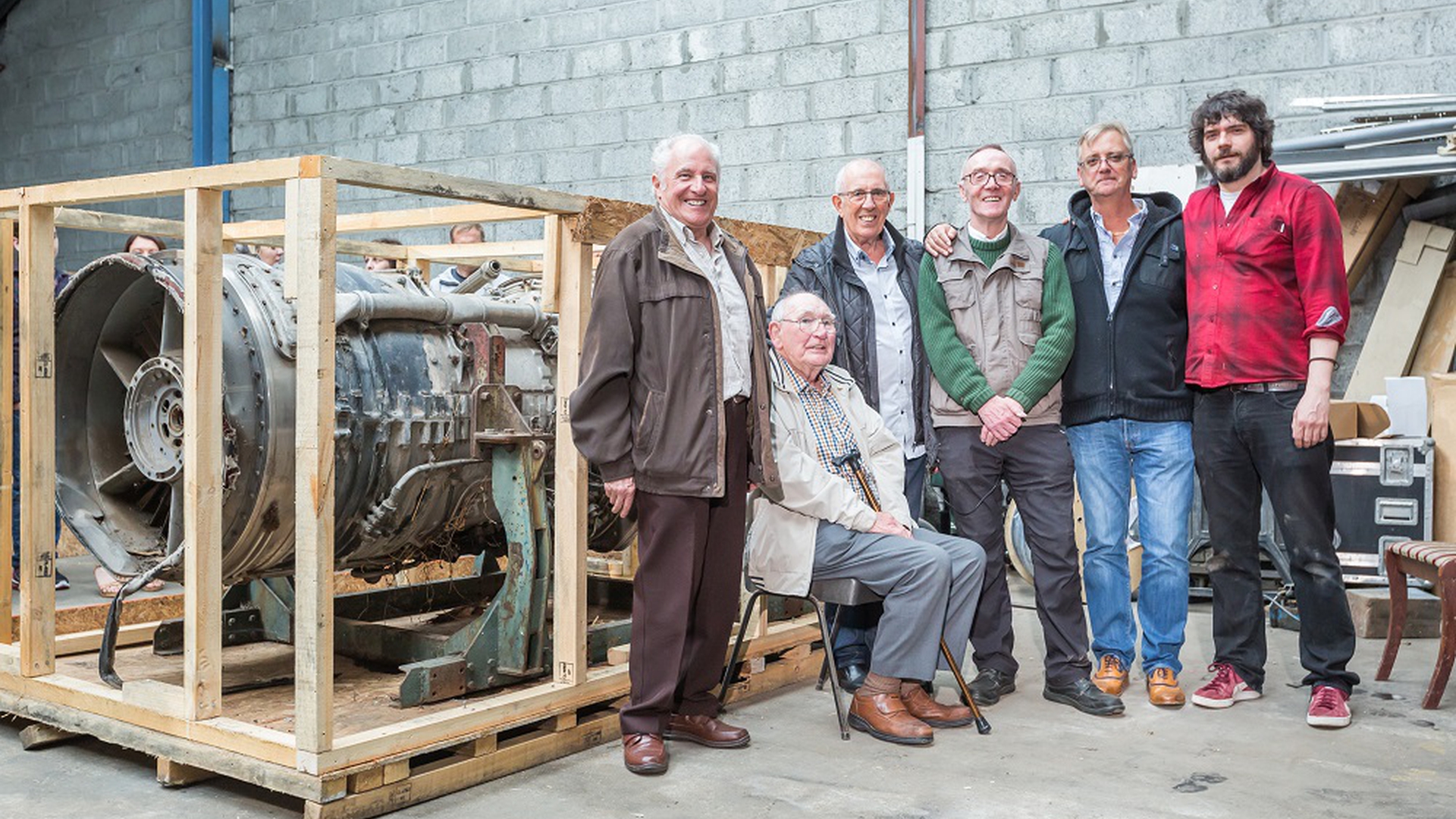In 1974, three workers at the Rolls Royce plant in East Kilbride took a stand against Pinochet. Now, a new film seeks to tell their story - and it needs your support.
In 2015, three retired Scottish workers from the Rolls-Royce factory of East Kilbride, Scotland received the highest honour given to foreign civilians from the Government of Chile to the rank of Commander.
The Chilean ambassador was there in person to bestow the Medal of Order of Bernardo O’Higgins, on behalf of the Chilean president, to Bob Fulton, Robert Somerville and John Keenan, manual labourers and trade unionists for most of their lives.
This very special distinction was given in recognition of their stand, forty years earlier, in solidarity against the regime of General Pinochet and for their efforts to preserve human rights in Chile.
In 1974, months after the coup d’etat in Chile, which brought an abrupt end to the first democratically-elected left-wing presidency of Latin America, the Scottish factory received military aircraft engines belonging to the Chilean Air Force, back for maintenance. Bob and his colleagues had seen the images of the coup, they had seen the roles the warplanes had played and they knew they’d helped fix those planes. They felt a responsibility and decided that those engines were done, they wouldn’t send them back. They stuck them in the yard behind D-block to let the Scottish weather play its part.

Their boycott carried on for four years, under pressure from the Chilean Air Force, their own management, Conservative MPs and British corporations who wanted to continue doing business with the dictatorship. Yet they had the still-then solid support of trade unions, workers across the UK, Chileans in exile and, judging by the letters they received each year, from thousands of individuals who shared their stance. It kept Chile in the papers, and it boosted the solidarity campaigns trying to rescue prisoners from concentration camps.
One night, four years later, the engines mysteriously vanished from the Rolls-Royce yard. The workers were told soon after that their gesture had accomplished nothing and they’ve lived with that false ending ever since.
I had heard of this story as a kid, my father being a journalist in exile from Chile. I found the three men a few years ago. The man who initially refused to work on the Chilean engines was an inspector called Bob Fulton. At 92, Bob is one of the most colourful human beings I’ve had the chance to meet. Gracious and curious, conversation and memories poured out of him. While he had transformed some of his recollections over the years, they always reflected his approach to life and people – full of compassion, gentle and open-minded.
He was very open from the start, baffled that someone was still looking for these engines, and doubtful yet keen to find out whatever had happened to them.
When I told him what I knew then, which is a fraction of what I know now, he broke down. Here was a man with a piece of a puzzle he had come to believe was meaningless. With their help, I started building their story back together, from their memories and confidential documents recently declassified for a short documentary called NAE PASARAN.
Thanks to the success of the short, doors opened, new documents surfaced. Based on our research, the Chilean government then (which has now changed after new Presidential elections on Sunday elected a right-wing billionaire) decided to recognise the workers. The recent medal ceremony in Glasgow came loaded with four decades of doubt and disappointment. As the ambassador announced the medal, the three men were surrounded by their families, their former colleagues, the activists of the Chile Solidarity campaigns and some of the Chilean exiles they’d helped. It was one of the most emotional moments I got to witness, let alone play a part in.
I have now been working on the full-length feature film of NAE PASARAN, the result of five years of research, which led recently to the discovery of the lost engines and the return of one of them back to Scotland, where it’ll be turned into a monument to the workers’ action. The new film is the story of that investigation, that journey with the old guys as they come to discover the true role they played against one of the most repressive modern dictatorships.
We are self-raising some of the budget ourselves to ensure we can finally finish the film after five years of research and many more revelations. You can help support the project here. The campaign ends tomorrow (December 20th) at 5pm GMT.
Photos: Chris Scott (used with permission
